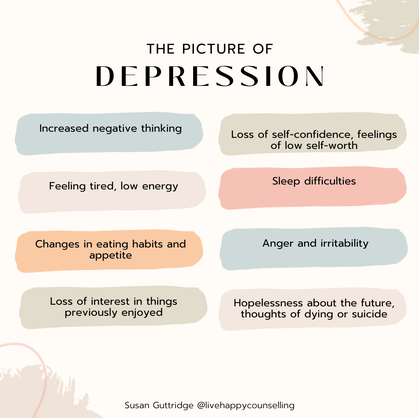 On the darkest of nights, when there seem to be no options – no solutions to the despair you feel, how will you find your way? When it seems like there is no hope left, will you hold out hope for your own fire? I’d like to write about suicide, and the option that takes just the tiniest spark of hope: living. Ask 10 people for their thoughts on suicide, and chances are you will receive 10 completely different responses. Suicide is a word packed with 100 times more emotion than syllables. And even in sitting down to write about it today, I had to wait for the whirl of emotions to slow before I could hear the one constant resounding thought: I value life. I value life. I didn’t always though. I was once an impulsive and shy kid with few friends, the target of ridicule by classmates – once or twice even by teachers. I knew rejection. I knew loneliness. I even knew the pain of grief when cancer claimed my mother . I knew feeling directionless. Feeling unsure of myself. Of having no one to turn to who would truly have my back. One day, during my Masters degree training, I took a class on suicide risk and intervention. After learning crisis intervention and theory, we were required to demonstrate our suicide intervention abilities by role playing client and clinician. When it was my turn to play the role of the ‘client’, I harnessed those many years past from my youth, when living another day felt unbearable. And while I could still acknowledge the pain of those days, I could barely get the words out in order to “act” suicidal in the moment. And that was when it dawned on me: I value life. I could not even pretend for one moment that I didn’t want to be alive. I have bad days and sad days. I have lonely days and grumpy days. But I also have good days and joy-filled days. I have peacefully quiet days and blissfully calm days. I have days when I feel invisible but I have so many more days when I love and value myself. The thoughts and emotions that awaken thoughts of suicide are a signal that you are in pain. That you are hurting and feel powerless to create change yet that you desperately need to create that change in order to be ok. Sometimes it might feel as though that change is impossible. Sometimes it might feel as though the energy required to act on creating that change is just too much. So what can you do? We need to get out of our own heads. The view one takes of the world when feeling depressed or anxiety-ridden can become a habit and can breed more thoughts that are characteristic of depression or anxiety. We need to really look at the people in our life and ask the tough questions. We need to turn towards the people who care and we need to let them care. We need to be kind – even to ourselves. We need to listen. We need to be present. And in doing so, we can ignite the tiniest spark of hope to keep going, to find your fire – because this life really can be good. If you are feeling suicidal, please reach out for help. Call, text, email, talk. You have more worth than you know. If there isn’t someone you can talk to, or a Crisis Line in your area, check out The LifeLine App in the App Store.
0 Comments
Last week I was invited to speak on the topic of caring for those in your life who might be struggling over the Christmas holidays. A women’s group, who recognized how easy it can be to get swept up in the busy-ness of holiday cheer, wanted to ensure they were picking up on the signs of those who might be struggling in order to be present, attuned, and responsive to their needs. The truth is, the holidays really aren’t glorious for everyone and may even create a worsening of symptoms connected to low mood, anxiety, and loss. While I can’t give you the webinar verbatim, here are a highlight of ideas to help you connect with the people you know who may find the winter holidays difficult. 1) Use your Intuition, and know the Signs Not everyone is going to tell you how they are feeling, and the signs of depression and anxiety are not always obvious. Use your intuition and knowledge of the person. Here are some additional indicators to be aware of:
Things Someone who is Struggling might say When we are truly listening, we are not thinking about what to say next. Truly listening means we are attuned to the person speaking. When you listen, you may hear clues the person is using to tell you they are struggling. It might sound a lot like:
2) General Guideline Ideas to Care for Someone who is Struggling
3) The Tyranny of “Are you Okay?” Ah yes – beware the “Are you okay?” question. Have you ever noticed that asking “Are you okay?” often assumes you are looking for the person to say they are not, and when their answer contradicts this expectation, you feel they are withholding information and therefore repeatedly ask “Are you okay?” until frustration ensues and yup – you guessed it, now they really aren’t okay! Asking “Are you okay?” sets you up for an unfulfilled answer. Try not to ask it, and try these options instead. The answers they may elicit will yield far greater information and the recipient of the question may even feel more understood and validated. Instead of asking “Are you Okay?”, try asking:
4) Tune the Heart through Positive Shared Experience Research has found that connecting with a practice of gratitude can actually impact one’s outlook. It must been deeper than the simple “I am grateful for the sunshine today” and must be expanded with: “I am grateful for the sunshine today because _____” Now, if you enter into a conversation with someone who is emotionally struggling with an attitude of airy gratitude, you will risk rending yourself unrelatable and your helpful efforts may be brushed aside. However, there are some ways you can bring an attitude of gratitude into your connection with them. Here are some examples:
Thank you for reading: it means you are aware that someone in your life might be struggling and you are exploring ways to be more present and responsive to their needs. Resources: Shawn Achor, The Happiness Advantage: The Seven Principles of Positive Psychology that Fuel Success & Performance at Work Elisha Goldstein, Uncovering Happiness: Overcoming Depression with Mindfulness and Self-Compassion |
AuthorSusan Guttridge is a trauma-informed Master level Counsellor with the clinical designation of Canadian Certified Counsellor (CCPA). She has 20+ years experience providing individual and group therapy. Archives
January 2024
Categories
All
|



 RSS Feed
RSS Feed